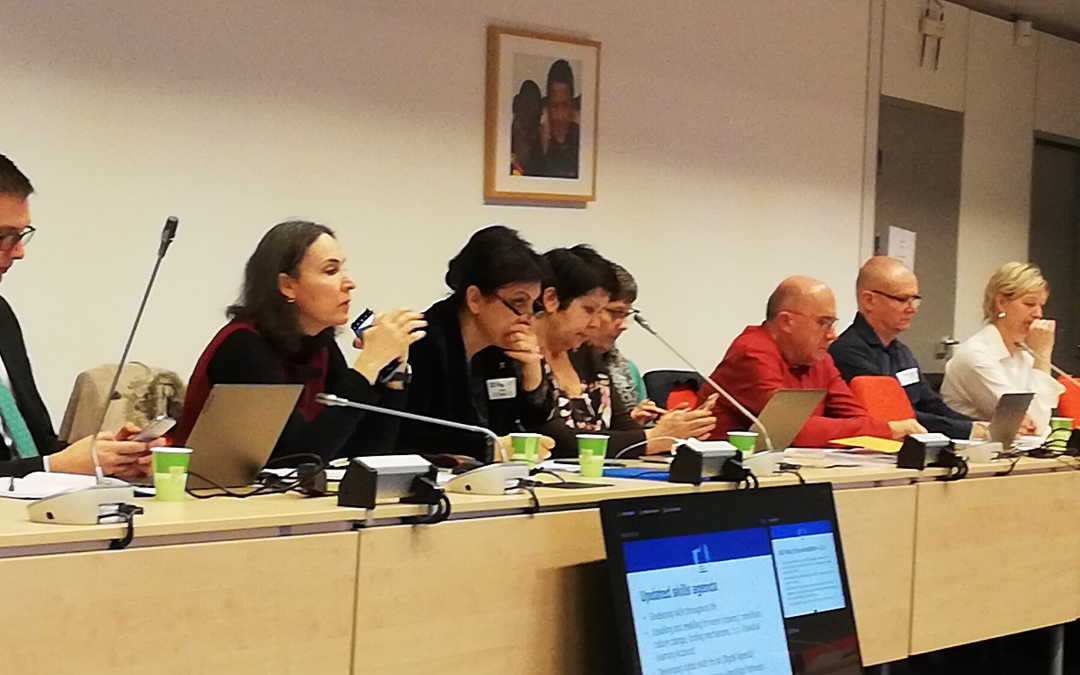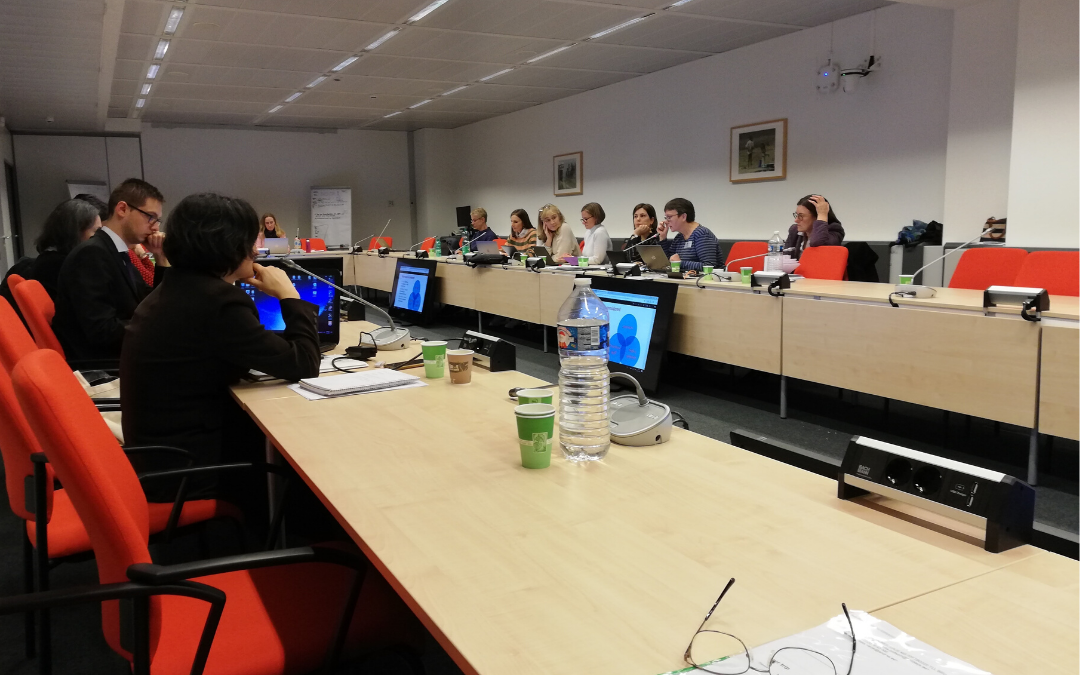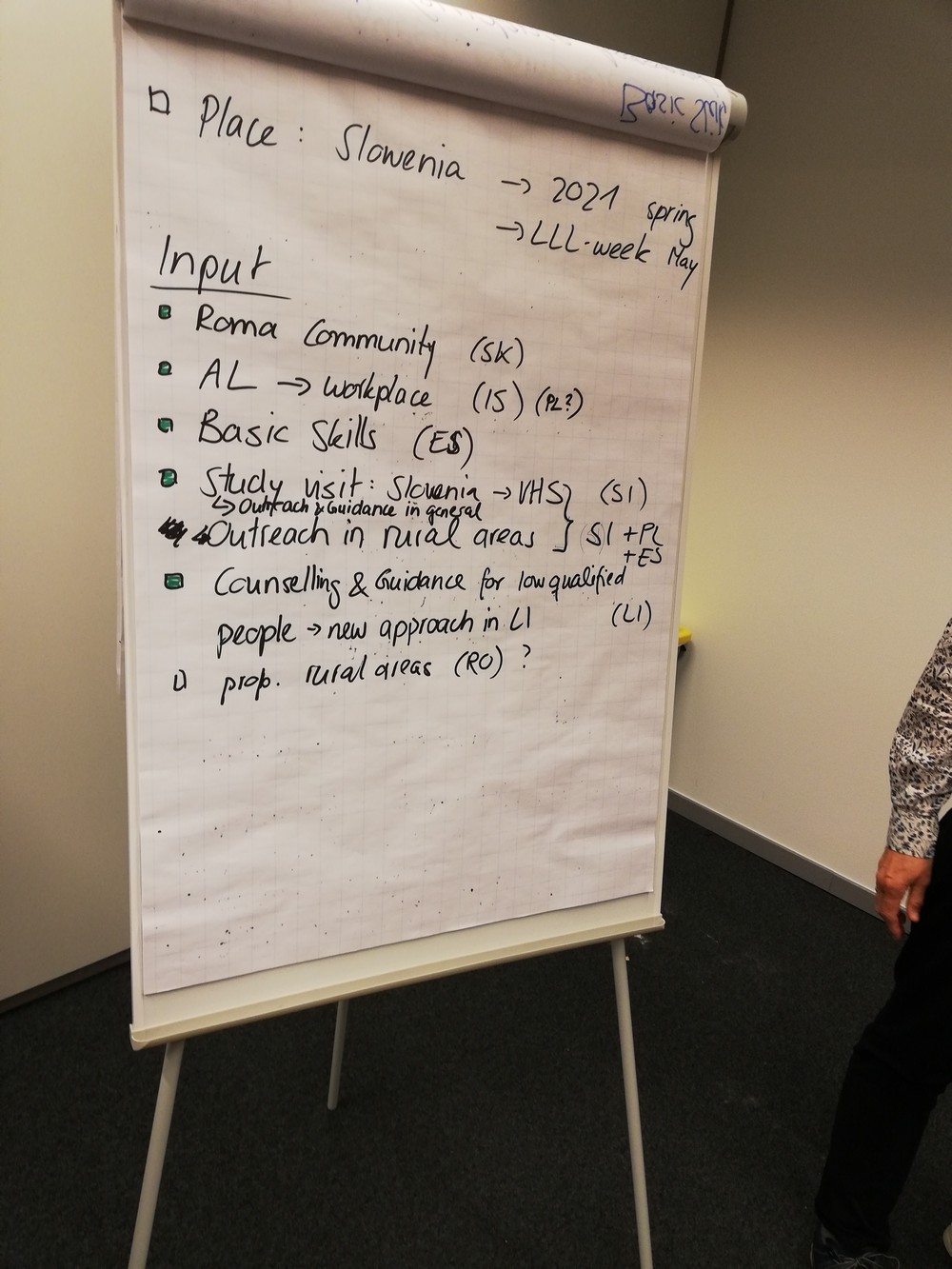The European strategy, Education and training 2020, is coming to an end, and a new strategy has been in the works for a while. In this transitional period, the project, Implementation of the (the EAAL project), is entering a new two-year phase. Almost all member countries are continuing with the activities from the 2017–2019 phase, or are starting new challenges. We don’t know what will happen after 2021, but it is very probable that a new EAAL or a new European adult education strategy will be adopted, perhaps even during the Slovenian presidency of the EU Council. It will undoubtedly be influenced by the priorities set by the new EC leadership, which advocates for a social, responsible, and sustainable Union.
“Competences are essential for a better future. Education and training are essential for competences.”
At the meeting of national EAAL coordinators on 4 and 5 February in Brussels, Dana Carmen Bachmann, Head of unit in charge of VET, Apprenticeships, and Adult Learning, informed us of the new aspects of European politics, especially in the field of adult education and lifelong learning. She summarised the recent Communications of the European Commission: The European Green Deal from December, and the Strong Social Europe for Just Transition from January. These two Communications show that acquiring competences is still a priority, that ways to improvement with re-qualification or upskilling are still important and that adults with low level or education or qualification are still the main target group. But some strong changes of direction can be felt, towards a society that values inclusiveness, fairness, preservation of resources, solidarity, multi-generational and multicultural solidarity. Non-formal learning is becoming more important, with a focus on learning communities. This fills me with hope and confirms we are on the right path! It also confirms we are on the right path when it comes to investing in education – the last European Commission Communication coincides with our Adult Education Master Plan in stating that the costs of re-qualifications and additional qualifications should be shared by the government/public sector, employers, and the individuals.
Look at past achievements to jump forward
The new EAAL was adopted in 2011. Since then, significant changes have been implemented in the European adult education systems, which has impacted the management, flexibility, better access, more services and better inclusion, as well as quality, in adult education. The European Commission presented the publication, Achievements under the Renewed European Agenda on Adult Learning for 2011–2018, prepared in collaboration with the working group for AE (including the Slovenian representative, Ema Perme). This interesting publication shows that adult education has gained recognition in the past few years, and attracted the attention of decision makers, while the AE systems have become more flexible in addressing national and European challenges. The advice to pay more attention to financing, coordination, collaboration with employers, and the professional development of adult educators and educational institutions after 2020, also shows how far we have come.
Peer learning affirms and inspires
We should also say a few words about PLA events, which encourage mutual learning, and were an important part of the EAAL national coordinators’ activities in the previous phase of the project. In the next two years, we will continue with these meetings, which is why we have defined four main topics of interest: professionalisation of adult educators, digitalisation in the field of adult education, flexible services offered in the field of adult education, and field outreach, counselling, and evaluation. This last topic will be discussed at a PLA event hosted in Slovenia, probably as part of the national opening ceremony of LLW 2020.
Since 2015, the implementation of EAAL has been closely connected with the EPALE platform. One example of this is the regional EPALE/EAAL 2019 Conference, which took place in Slovenia. In 2020, a new EPALE Central Support Service has been established. The Service, and the European Commission, have set themselves some very ambitious goals, and we can also look forward to improved platform functionality and other new features. It seems that we will also be facing some new challenges together in this area.
Other topics on the agenda of our meeting in Brussels were: a presentation of a new financial support scheme for individuals and businesses, InvestEU 2021–2027, the announcement of a new Eurydice study on adult education in Europe (2021), and a presentation of projects on which our colleagues from other countries have embarked with additional sources of financing (Erasmus+ KA3 Policy experimentation or Structural Reform Support Services). We also received instructions about reporting on the previous phase, and the current EAAL project. We are happy to report that the EC has simplified the administrative procedures – an example worth following!
We will keep you informed about EAAL activities in Slovenia. We are looking forward to implementing them with your help.
Zvonka Pangerc Pahernik, MSc (zvonka.pangerc@acs.si), ACS




